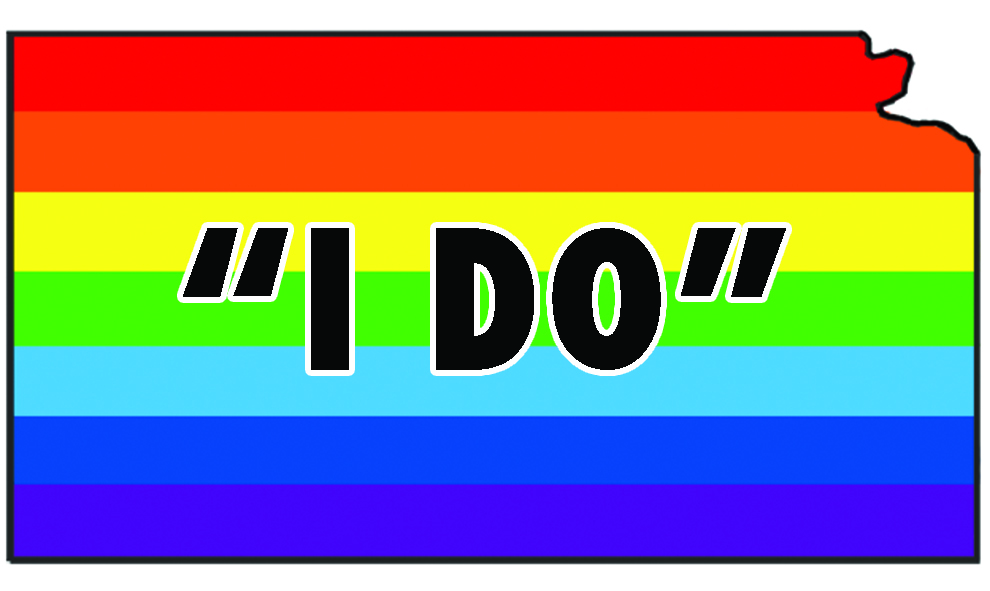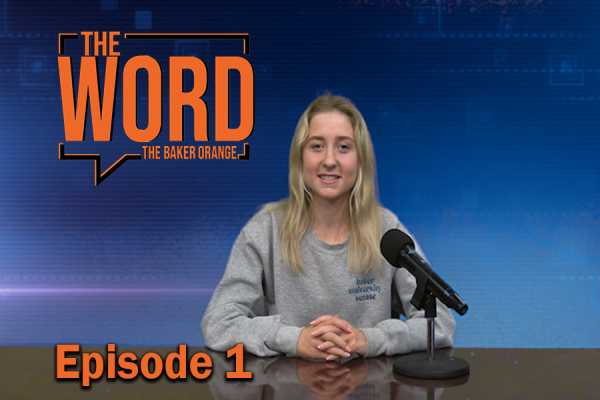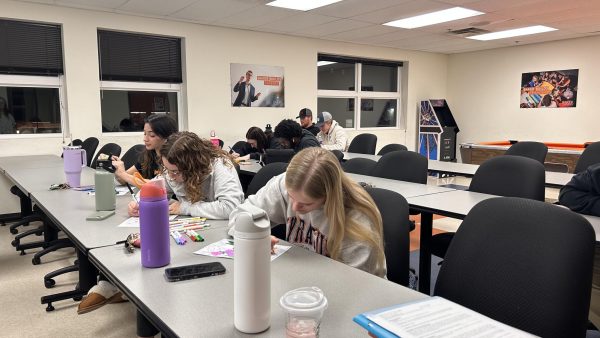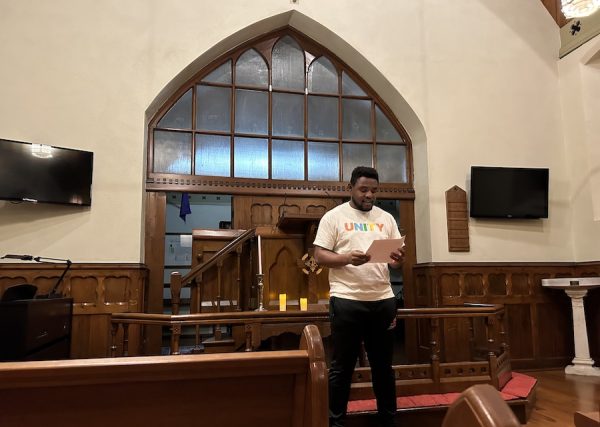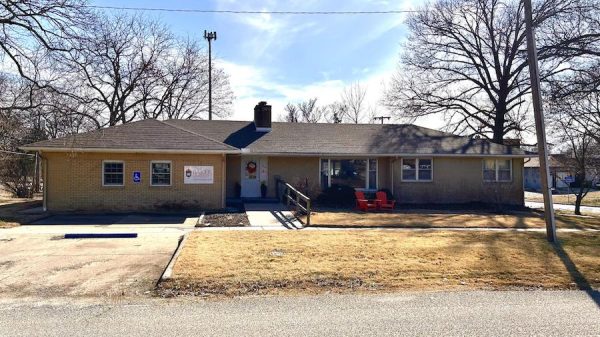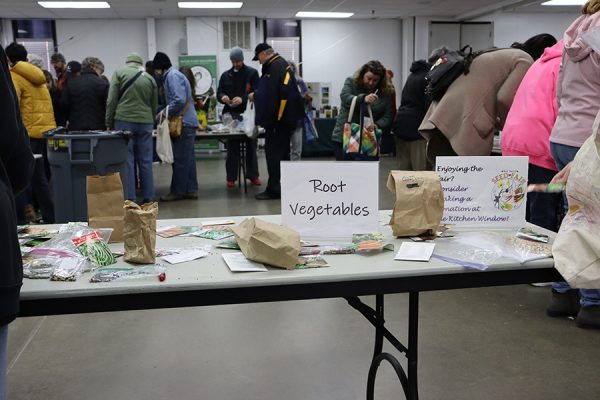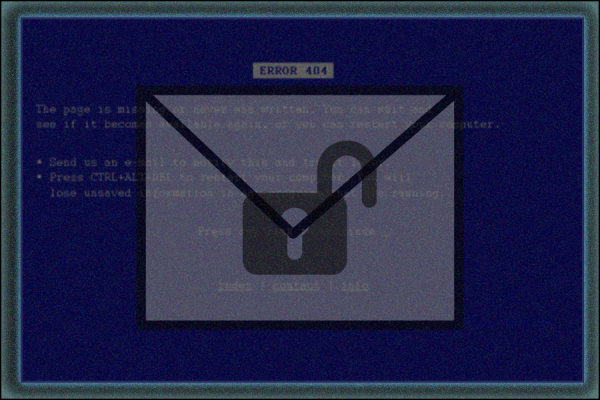Students celebrate step in marriage equality
December 9, 2014
He knew he was different at a young age. At first, he was unsure of why he felt unlike his peers, but soon realized it had to do with his attractions. At age 15, senior Ben Sobek came to the realization that he was gay.
“Middle school is not easy for anyone and before I even knew I was gay, people were picking up on that and I did get made fun of for it,” Sobek said. “There is always this sense of knowing that I am different from others.”
Due to recent court rulings, same-sex couples in Douglas and Sedgwick counties are now able to use their legal right to say “I do.” Several Baker students and those in the LGBT community are glad to see the change, regardless of their own sexuality.
Senior Aubrey Eicher has been involved with the Gay Straight Alliance at Baker as a heterosexual activist. Because one of her family members is bisexual, she takes the issue seriously.
“I was thrilled to hear the decision,” Eicher said. “If one day (she) ever loves a woman and wants to have that kind of commitment, it makes me happy to know that I can stand there with her.”
Junior Laura Bynum is a part of Baker University’s GSA. For her, Kansas’ legalization of same-sex marriages is a positive change for the state and gives future generations the opportunity to spend their lives with whom they want in legal matrimony.
“I agree with the legalization of same-sex marriages. It’s nice to see it so close to home,” Bynum said. “I think it’s a really big step forward based on the last few year’s decisions regarding same-sex marriages. It’s a really surprising yet exciting and hopeful time for Kansas.”
Bynum does not agree, however, with the way some people choose to stand out against same-sex marriages.
“Of course everyone has the right to express their own opinions, but at the same time, I don’t think that the freedom of speech should allow people to say things that are discriminatory toward other people who also have the right to express how they are,” Bynum said. “I would just really like to see more openness toward differences in the ways that people choose to express their sexuality.”
In Sobek’s opinion, the stigma surrounding the LGBT community comes from a lack of awareness about sexualities that differ from the norm. In his experience, people’s opinions about homosexuality tend to change once they know more about him as a person.
“I’ve had friends that were pretty homophobic before they knew me, but after getting to know me, they realize that I’m OK, I’m natural and have natural attractions, so it all clears up,” Sobek said. “It’s all about the fear of the unknown.”
If Sobek could do anything to improve the future, he would steer society’s current outlook on LGBTs to a less stereotypical view.
“Sometimes when I’m with people who are supportive of gays, there are these little things that come up that were taught by society that are really not OK,” Sobek said. “For example, I don’t like the fact that gay men are called queens. I think it’s derogatory.”
Students on campus are seeing the issue in a whole new light now that the state has lifted restrictions on who can say their marriage vows.
“I think more than anything it’s about equality, and everyone deserves the right to marry if that’s what they want to do,” Eicher said. “It’s an important step in any relationship to show that commitment and love and I feel like everyone should have the right to do that.”



